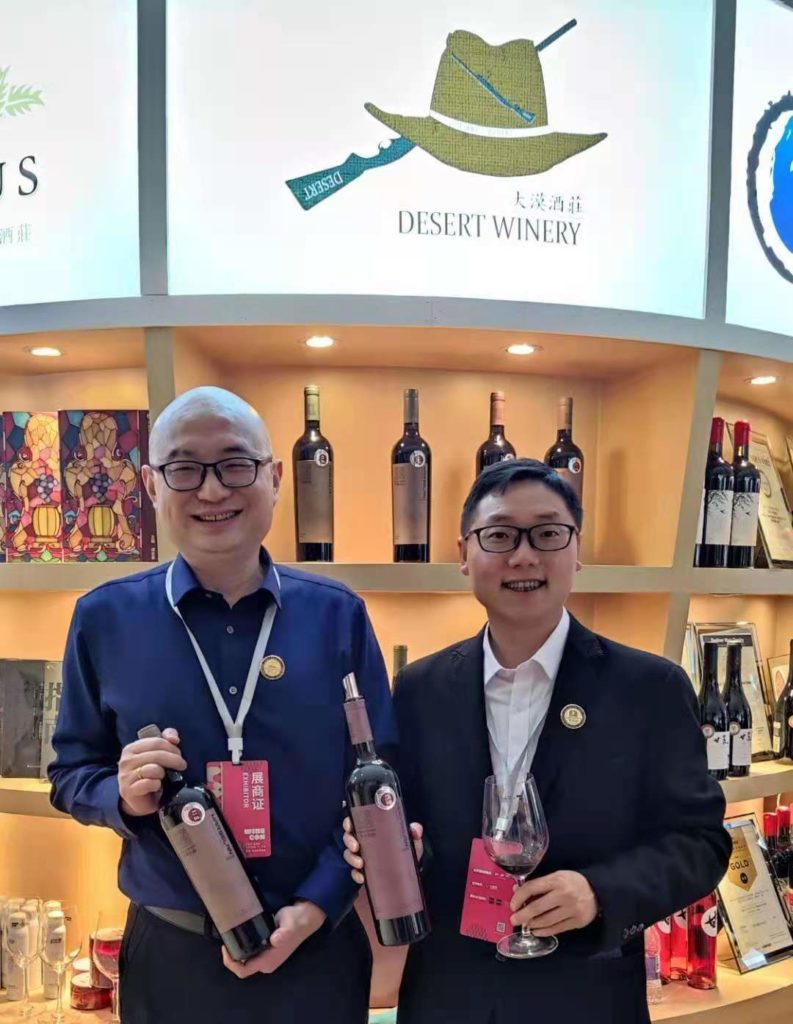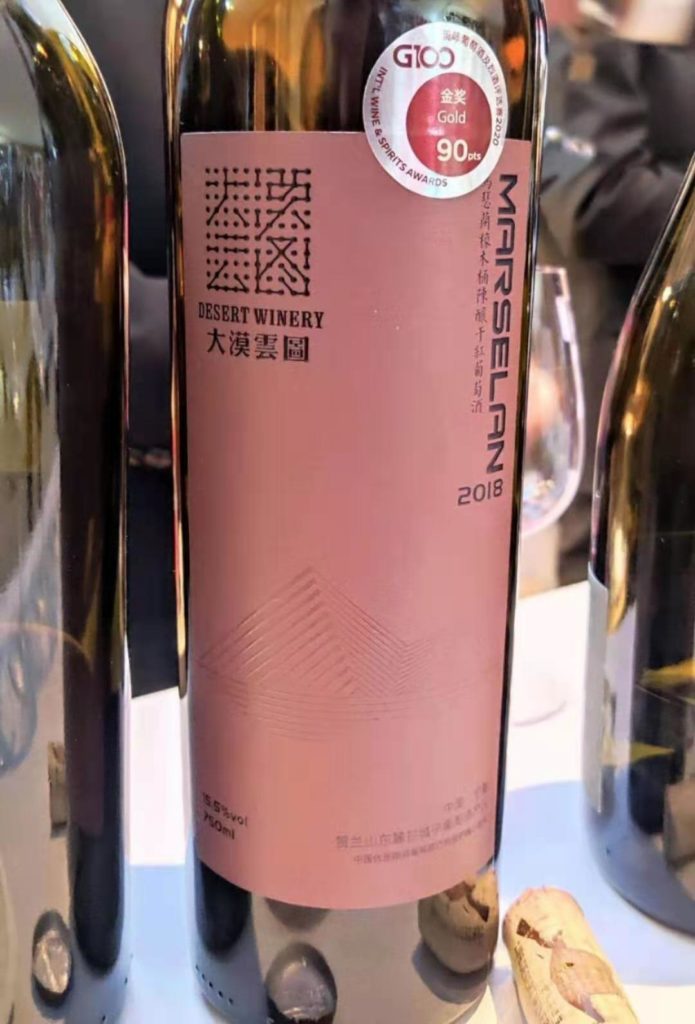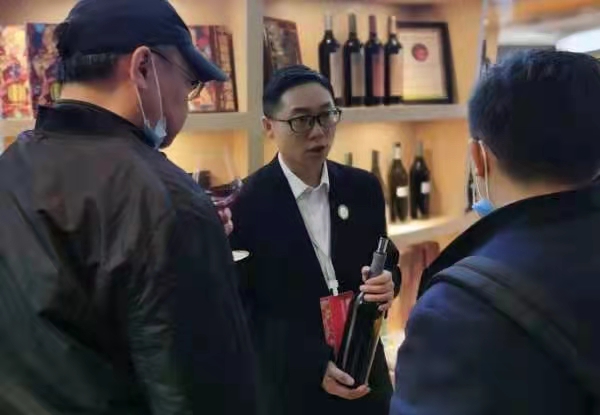Ningxia Life Desert Winery is among the few operations in China focused on the Marselan grape. I asked managing director Xie Nianqi aka Charlie Xie about this winery in the Qingtongxia area of Ningxia in north-central China.

Boyce: Could you tell us a bit about Desert Winery?
Xie: Ningxia Life Desert Winery was established in 2017 in Qingtongxia, on the eastern side of the Helan Mountains. The first vineyard is 80 mu (5.3 hectares), with Marselan as the primary grape. We started cultivating a second vineyard measuring 255 mu (17 hectares) at the start of this year. Meanwhile, both a winemaking building and an affordable luxury hotel are under construction.
Our focus is cultivating, making wine with and marketing Marselan. Besides our barrel-aged Marselan, there will be a series of other wines, including the upcoming reserve Marselan.
What convinced you guys to focus on Marselan? Where did you source the vines?
After many investigations, we noticed the excellent performance of Marselan in Qingtongxia. Marselan is very suitable for the climate and soil here and has both disease and insect resistance. The sugar and phenols accumulate well in the grapes. And Marselan wine naturally offers diversity and complexity.
Marselan is also a new grape variety, with a huge growth space compared with other varieties. Our vines originated in southern France and are all virus-free. They were grafted in China.
What are the biggest challenges with Marselan, in terms of growing the grapes and selling the wines?
In terms of growing, the biggest problem is the lack of workers. Our grapes are picked by hand and there is a shortage of labor. The vines in Qingtongxia also need to be buried for the winter, a project that requires a huge amount of labor. Burying is the best way to help the grapes survive the winter.
For sales, China’s alcohol market is still dominated by [the spirit] baijiu, and the wine share is very low. Baijiu culture is prevalent, so wine culture promotion and sales are difficult.
With the improvements in China due to the national opening up policy and of people’s living standards, more and more consumers choose affordable wines. Our barrel-aged Marselan is a high-end product, so the biggest problem is that we need to quickly enhance its reputation and popularity.
Qingtongxia is among the stronger regions for Marselan in China. What distinguishes the Marselan here?
Like other top wine-producing areas around the world, the core advantage of Qingtongxia is the natural conditions. Qingtongxia has a continental arid or semi-arid climate, has an average altitude of more than 1000 meters, and is covered with calcareous soil and pebbles, giving the earth good water permeability. The sunshine time is up to 3000 hours per year and, with a large temperature difference between day and night, the grapes can slowly grow and mature.
If someone asks, “What is Desert Winery Marselan like?”, what would you say? And what is your favorite food with your wine?
Our wine is deep dark red and has a rich aroma, with blueberry and violet characteristics. You can also smell a bit of clove and cinnamon. The wine is full-bodied with firm structure. The tannins are delicate, balanced and elegant.
For food pairings, I would recommend Sichuan cuisine, braised lamb, steak and barbecue.
(Read more Marselan Q&A here.)


